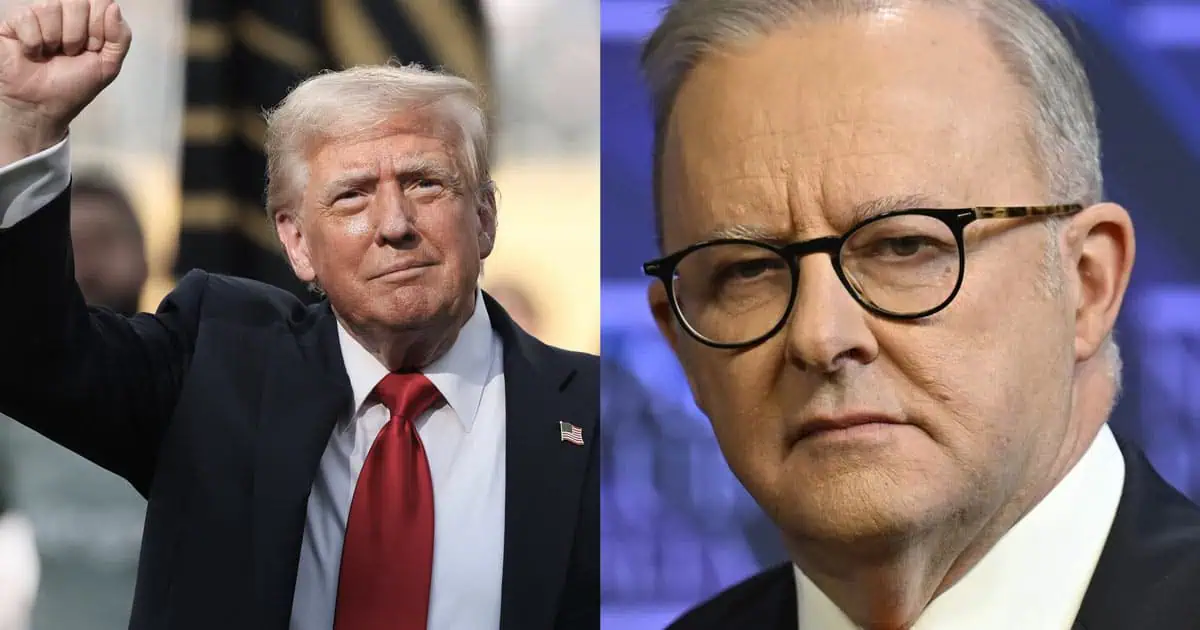The Australian government has made a significant concession in its longstanding beef import restrictions, finally agreeing to lift tough biosecurity measures and allow U.S. beef from Canada and Mexico.
This shift comes after months of internal debate and pressure from the U.S. side, particularly from the Trump administration’s aggressive trade tactics.
In 2019, the U.S. beef ban was lifted after nearly two decades of restrictions due to concerns over mad cow disease.
However, continued complications arose from the origins of U.S. beef, which often includes cattle from Mexico and Canada, complicating trade relations further.
This move by the Australian government highlights the broader impact of President Trump’s tough tariff regime, including his April “Liberation Day” tariffs, which hit countries like Australia with a 10% duty on imports.
The Australian government has faced significant pressure, particularly from U.S. producers, to remove the biosecurity restrictions on U.S. beef, which have long been seen as a major obstacle to expanding trade.
In 2003, U.S. beef imports were banned after a case of mad cow disease was found, but with the ban lifted in 2019, the U.S. beef trade with Australia remained burdened by complex regulations.
The National Cattlemen’s Beef Association (NCBA) has called the restrictions “lop-sided and unfair,” reflecting years of frustration with trade barriers that have stalled U.S. beef exports.
But despite Australian objections, the U.S. maintained leverage with the threat of tariffs, which brought uncertainty to Australia’s vast beef export trade to the United States, a market in which Australia plays a dominant role.
With about 400,000 tonnes of beef exported annually, Australia is the largest supplier of beef to the U.S. and also the leading provider of wagyu beef, which accounts for nearly half of the U.S. market.
This makes the decision to lift the ban a strategic one, allowing Australian beef producers to maintain their standing in a crucial market.
On July 24, Agriculture Minister Julie Collins announced that the Labor government would embrace “open and fair trade,” offering assurances that biosecurity would remain a priority.
She emphasized that the United States has implemented stronger control measures, which will help manage any potential risks.
“The U.S. Beef Imports Review has undergone a rigorous science- and risk-based assessment over the past decade,” Collins stated.
“The Department of Agriculture, Fisheries and Forestry is satisfied that the strengthened control measures put in place by the U.S. effectively manage biosecurity risks.”
However, the finer details of these safeguards are still under scrutiny. Critics within Australia, including members of the National and Liberal parties, are calling for further transparency regarding how these new assurances will protect Australian agriculture from foreign diseases and pests.
David Littleproud, Leader of the Nationals, expressed skepticism, suggesting an independent panel review the decision.
“I want to see the science, and it should be predicated on science,” Littleproud said, questioning the validity of the controls imposed by the U.S. government.
While the tariff dispute may have come to a head with the easing of restrictions, it has also sparked a wider conversation about Australia’s approach to trade.
Commercial lawyer Dan Ryan has argued that Australia should reevaluate its stance on free trade and learn from the Trump administration’s emphasis on tariffs as a tool for protecting national industries.
“Australia needs to have its own independent industrial capacity, even if it costs a little bit more,” Ryan said.
He pointed out that the current trade agreement with China, which allows for 100% duty-free imports of Chinese goods, undermines Australia’s domestic manufacturing capabilities, echoing concerns that Australia’s reliance on cheap foreign imports weakens its sovereignty.
Ryan’s comments reflect a growing sentiment among some conservatives that Australia should reconsider its approach to free trade agreements, especially with nations like China, in favor of policies that protect Australian industries and preserve economic independence.
While the agreement to lift restrictions has received backing from some quarters, it has not been without significant opposition.
Both National and Liberal MPs are demanding more clarity and assurance that biosecurity measures will not be weakened.
The government has yet to provide all the details regarding these protective measures, leaving many questioning whether national security is being compromised for the sake of trade.
Senator Jane Hume, representing the Liberal Party, warned that any dilution of biosecurity laws could jeopardize the country’s agricultural integrity.
“This isn’t about protecting an industry’s prosperity, it’s about protecting an industry’s integrity,” Hume said, emphasizing that Australia’s biosecurity standards should not be sacrificed for economic gain.
As the global trade landscape continues to shift, the decision to relax restrictions on U.S. beef imports under the pressure of tariffs highlights the power dynamics between sovereign nations.
With countries like the U.S. leveraging tariffs to push their agendas, smaller nations like Australia are forced to navigate complex trade-offs between economic prosperity and national security.
The current debate over U.S. beef imports is just one example of how trade policies can impact national sovereignty, and it underscores the growing tension between globalist economic policies and national protectionism.
As Australia moves to open its markets to U.S. beef, it also faces an ongoing struggle to balance free trade with the need to protect its agricultural and economic interests.
As the situation evolves, Australia and other nations facing similar pressures will have to decide whether to prioritize the promises of free trade or safeguard the future of their own industries and sovereignty against the growing influence of global trade elites.
READ MORE – Bill Gates Complains Trump Has Put His Global ‘Vaccine’ Agenda ‘at Risk’

Our comment section is restricted to members of the Slay News community only.
To join, create a free account HERE.
If you are already a member, log in HERE.